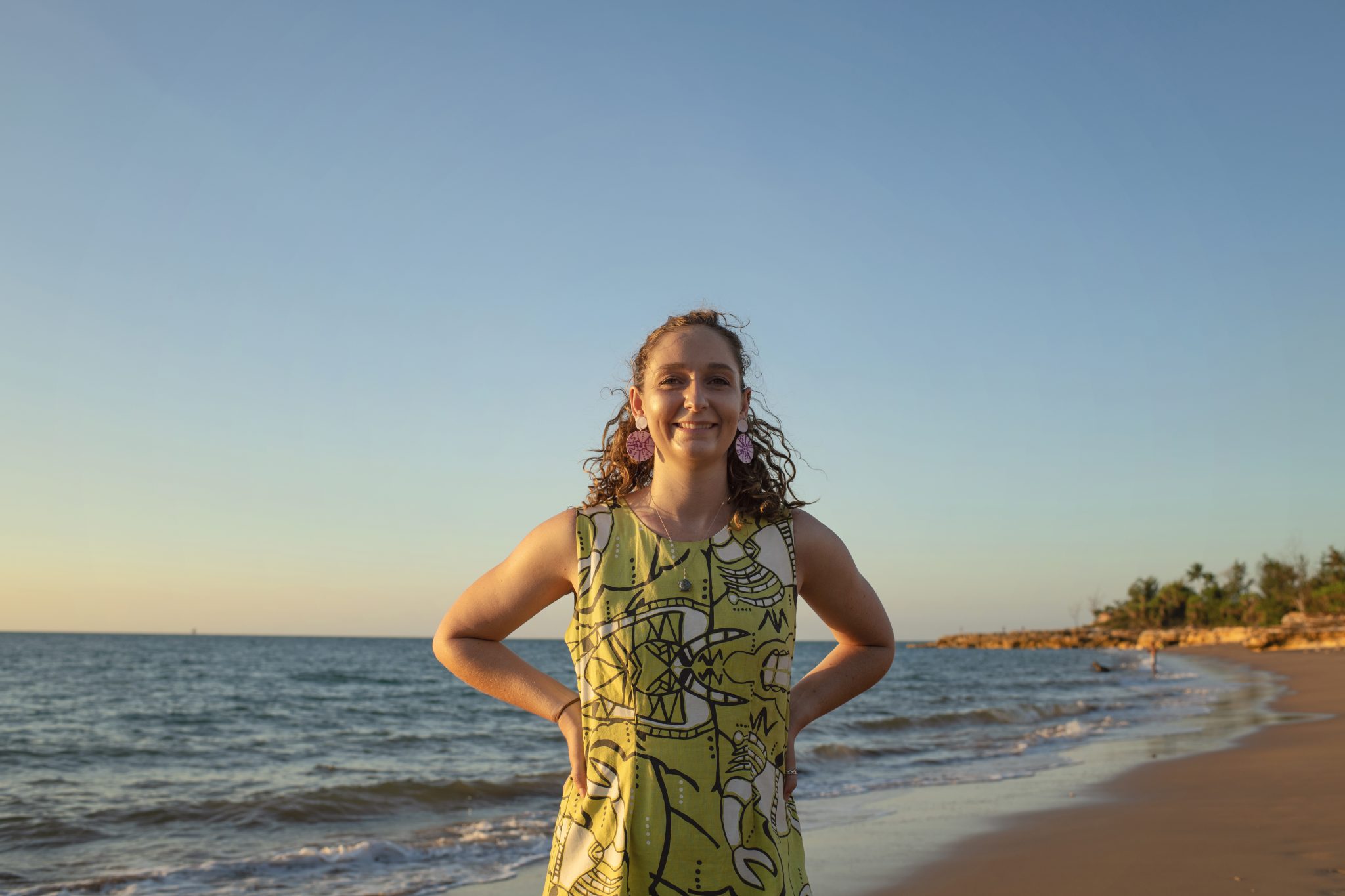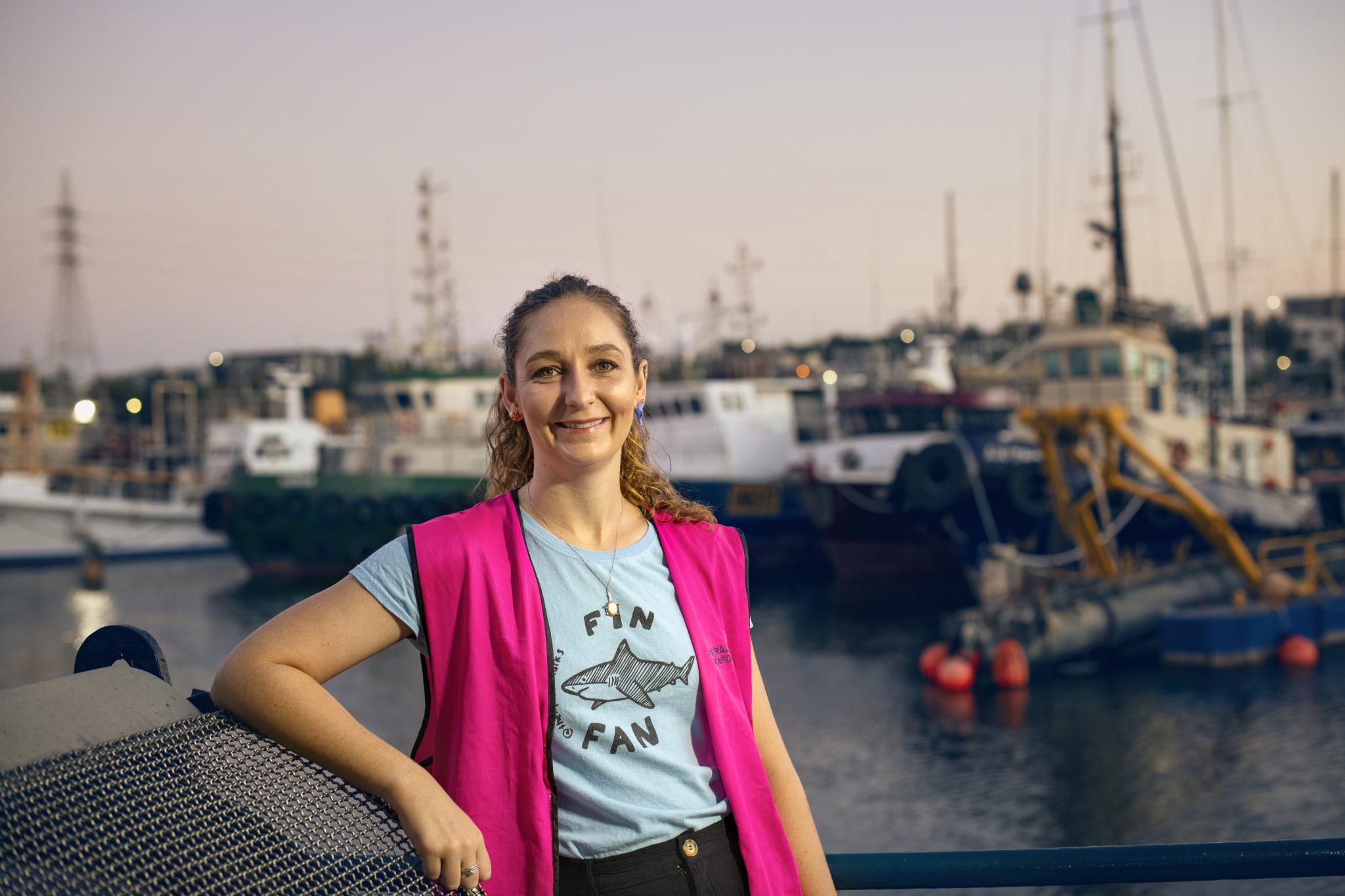Amy Kirke began her schooling years a long way from her hometown of Perth. Travelling with her parents, whose careers were intertwined with the mining sector, young Amy started school in Chile alongside her sister, in a small, rural mining town. From there, the family – with two more daughters joining the Kirke ranks – skipped onwards; living for four years in the red-stained soils of the Pilbara before moving to Laos in South East Asia.
Completing her high schooling back in Western Australia, Amy lived in, on and around the sparkling west coast, a passion that preluded her career as a marine biologist. “I did a lot of sailing, swimming, snorkelling and diving,” she says. “That’s what I remember most growing up; camping and fishing and always being on the water. I loved biology all the way through high school and I really had a connection to the water and the ocean through activities and sports and the happy memories that were made when we were on holidays.”
With a mother concerned about the future job prospects of a scientist, Amy chose a double degree in Arts and Science, incorporating both psychology and marine and conservation biology into her schedule at Murdoch University. Although an increasingly competitive industry, marine biology won in the end – driven by an experience swimming with the largest fish in the ocean.
“I did an elective unit over our winter break at Coral Bay, an hour south of Exmouth on Ningaloo Reef where my university had a research station,” she says. “We did a lot of swimming with sharks, and on my day off I went on the Whale Shark Swimming Tour. It’s very hard to describe being in the vast blue of the ocean with a creature that size.”
In 2018 the marine biologist jumped at the chance to take on a PhD at Darwin’s Charles Darwin University, studying the biology and ecology of the Australian Blackspot Shark and the Milk Shark caught as bycatch in Northern Territory commercial fisheries. Arriving in the aftermath of Cyclone Marcus, she was greeted by upturned trees and cut off water and electricity. Through her study of commercial fishing, the urge to teach and spread awareness of sustainable fishing started to float to the surface.
“For me, the most rewarding part of my research is being able to pass on the knowledge to other people. The more I learn about the ocean, the more I can share and encourage others to look at marine research with a similar sense of enthusiasm.”
The scientist started to immerse herself in outreach programs; passionate about encouraging more girls and women into Science, Technology, Math and Engineering (STEM). “I did Science Week last year and realised this was definitely what I was looking for. The kids had to listen to me going on about sharks for an hour!” she says. “I started to notice it was a lot harder for outreach programs to reach communities in the Northern Territory. It’s so important that we get to future scientists earlier, to get them thinking about their future. Just asking themselves questions; ‘What do I want to do? Where do I want to go? What am I interested in?’.”
Amy developed a pilot outreach program titled the Science Totally Roadshow; a simulated, interactive fishing game educating school children on all things sustainable fishing. Adapted from a program created by social enterprise Blue Ventures with the help of Jenny House, the kids are separated into teams and run a ‘fishing season’ on a reef mat, sparking conversations about management inputs and how fish populations are affected.
Diana Nowland is just one of the teachers that have witnessed their classrooms light up, thanks to Amy’s ‘Science, Totally!’ Program.
“Amy came into the classroom and engaged with the students straight away, they in turn responded to her with enthusiasm and delight. The students loved the fishing game they played with her and her shark presentation, they didn’t want the lesson to end!”
Chris Bradley has also seen first-hand Amy’s flair for bringing STEM to children of the Northern Territory.










